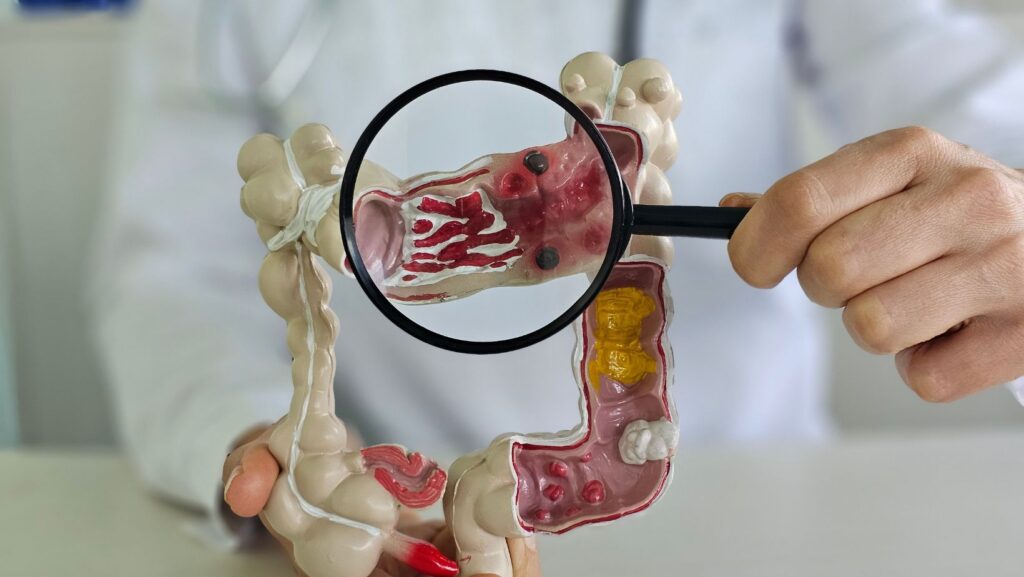
What if a simple procedure could significantly reduce your risk of a life-threatening disease? Colorectal surgery offers just that. By removing polyps and cancerous tumors from the colon and rectum, this specialized surgical field plays a crucial role in preventing and treating colorectal cancer.
However, while colorectal surgery is a powerful tool, understanding the procedure and its benefits is essential. That said, this article will explore the intricacies of colorectal surgery, from its role in cancer treatment to the latest advancements in surgical techniques.
What Is Colorectal Surgery?
Colorectal surgery is a specialized branch of surgery focusing on the treatment of disorders affecting the colon, rectum, and anus. This includes a wide range of conditions such as colorectal cancer and inflammatory bowel disease (IBD), like Crohn’s disease and ulcerative colitis, diverticulitis, hemorrhoids, and other issues impacting bowel function.
Colorectal surgery can range from minimally invasive procedures to more complex surgeries, depending on the severity of the condition. Minimally invasive techniques, such as laparoscopic and robotic surgery Singapore, are increasingly used to reduce recovery time and minimize pain. For severe conditions, surgeons may need to perform more extensive operations, like resecting a portion of the colon or rectum or creating a stoma (an opening in the abdomen to help with waste elimination) when necessary.
The Role of Colorectal Surgery in Cancer Treatment
The goal of colorectal surgery, in the context of cancer, is to remove cancerous tissue, prevent the spread of the disease, and improve the patient’s prognosis. Here’s an overview of how colorectal surgery helps in treating cancer:
Tumor Removal and Disease Management
Colorectal surgery primarily focuses on removing cancerous tumors from the colon or rectum. In many cases, this procedure involves resectioning, or removal, of a section of the intestine where the tumor is located, often including surrounding tissues and lymph nodes, to eliminate all cancerous cells.

This comprehensive removal approach is particularly effective for localized cancers that haven’t spread to other organs, as it can significantly increase the patient’s chance of survival and long-term remission. By eliminating the primary source of cancer, colorectal surgery serves as a foundational step in curative treatment plans, helping reduce the likelihood of cancer recurrence.
Minimally Invasive Techniques
With advancements in surgical technology, many colorectal surgeries are now performed using minimally invasive techniques, such as laparoscopic or robotic-assisted surgery. These procedures involve making smaller incisions, resulting in less postoperative pain, shorter hospital stays, and quicker recovery times.
For patients undergoing colorectal cancer treatment, minimally invasive surgery offers significant benefits, particularly as these patients may also be receiving chemotherapy or radiation as part of their comprehensive treatment plan. These techniques not only reduce physical trauma associated with surgery but also allow patients to regain strength sooner, facilitating a smoother path through the remaining cancer treatment phases.
Stoma Creation for Bowel Function
In cases where cancer affects large portions of the colon or rectum, the surgeon may need to create a stoma to help the patient maintain bowel function. A stoma is an opening (ostomy) created in the abdominal wall to allow waste to pass out of the body when normal bowel function is compromised due to extensive tissue removal or the need for healing.
This can be a temporary or permanent solution, depending on the cancer severity and surgical outcome. While adapting to a stoma can present challenges, it offers a vital way for patients to maintain digestive health and manage bodily functions, especially when large sections of the bowel are affected by cancer treatment.
Lymph Node Dissection and Staging
Colorectal surgery often includes removing nearby lymph nodes to help stage the cancer and reduce the risk of it spreading further (metastasis). By examining these lymph nodes under a microscope, pathologists can determine if cancer cells have migrated beyond the primary tumor site.
This process provides crucial information regarding the cancer stage, guiding decisions on further treatment options, such as chemotherapy or additional surgery. Removing affected lymph nodes also reduces the likelihood of recurrence, making this part of colorectal surgery essential in providing a thorough and precise approach to treating and managing colorectal cancer.
Reducing Symptoms and Improving Quality of Life
For cases involving advanced cancer or palliative care, colorectal surgery can help alleviate symptoms caused by the disease, such as bowel obstruction, bleeding, and pain.

In these situations, surgery aims not to cure the cancer but to improve the patient’s quality of life by addressing significant discomforts and allowing better management of daily functions.
This surgical intervention can offer meaningful relief for patients with severe symptoms, enhancing overall well-being and comfort. By improving quality of life, colorectal surgery provides a compassionate and practical approach to supporting patients through the challenges of advanced cancer.
Colorectal surgery is a highly effective treatment for localized colorectal cancer and plays a critical role in managing symptoms and improving patient outcomes. By addressing cancer at its source, this type of surgery can lead to remission, enhance the quality of life, and support overall health in conjunction with other cancer therapies.
Conclusion
Understanding the intricacies of colorectal surgery and its role in cancer treatment can empower you to make informed decisions about your health. As medical technology continues to advance, the future of colorectal surgery holds immense promise. With early detection, timely intervention, and the expertise of right colorectal surgeon, you can hope for a brighter future where colorectal cancer is no longer a life-threatening disease.












